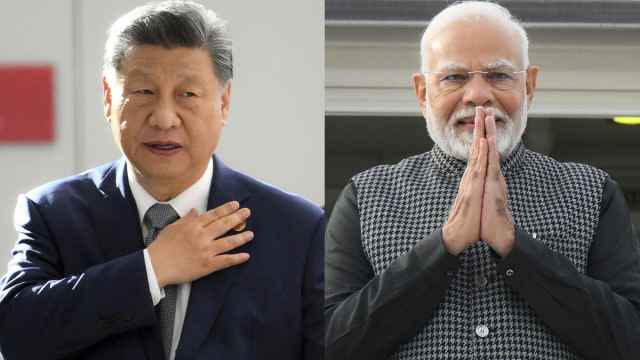What would make for an interesting presidential election campaign? Choice.
Voters would like to choose between candidates based on their platforms, their views on the problems facing the country and their proposed solutions. And even if one candidate has a huge advantage over the others, as is the case now, a competitive campaign would motivate him to articulate what he considers to be the main problem.
With only two months remaining before the elections, none of the candidates has clarified what he considers to be the key problems. The various statements made by Prime Minister Vladimir Putin, Communist Party leader Gennady Zyuganov and billionaire Mikhail Prokhorov are less of a listing of priorities than they are a grab bag of proposals in response to miscellaneous grievances directed at the administration.
One explanation for why the candidates have adopted such campaign platforms is that each is compelled to appeal to diverse constituencies. Both Putin and Zyuganov are unable to win these elections without at least 30 percent to 40 percent of the vote in Moscow and St. Petersburg. Prokhorov is even more dependent on solid support from pensioners and blue-collar workers.
But that explanation overlooks the fact that candidates in many countries must receive support from a variety of groups to win 50 percent of the vote. The United States is no less diverse than Russia, but its more competitive and transparent political system brings the differences among voters into greater relief, making the task before politicians even more difficult. At the same time, U.S. presidential candidates manage to formulate platforms that are more focused and concrete than those we are seeing here.
I have a different explanation. Twenty years ago, the collapse of the planned economy in the Soviet Union forced leaders to make sweeping changes of the whole system at once. The government had no choice but to push through reforms rapidly, often without any preparation. That may have been the best possible strategy — even in those countries that made the transition from socialism without suffering an economic disaster, such as the Czech Republic and Poland.
A conference marking the 20th anniversary of the famous workshops of the International Institute for Applied Systems Analysis was recently held in Vienna. Twenty years ago, Russian reformers learned about the experience of macroeconomic reforms and Vaclav Klaus, who served as the Czech prime minister during that country's transition to a market economy, and Leszek Balcerowicz, who was responsible for economic policy in Poland. They learned about the importance of implementing the reforms quickly and without trying to guess the optimal sequence or speed for carrying them out. Reformers in Russia, who initiated changes only after the situation had rapidly grown worse, had even less opportunity to prioritize.
But that was then. Today's situation is entirely different. Russia is not facing the threat of an economic emergency requiring immediate intervention. Instead, there are many different problems and difficulties. It would be good for voters to know what the candidates think about them and how they propose to tackle them.
Konstantin Sonin is a professor and vice president of the New Economic School and a columnist for Vedomosti.
A Message from The Moscow Times:
Dear readers,
We are facing unprecedented challenges. Russia's Prosecutor General's Office has designated The Moscow Times as an "undesirable" organization, criminalizing our work and putting our staff at risk of prosecution. This follows our earlier unjust labeling as a "foreign agent."
These actions are direct attempts to silence independent journalism in Russia. The authorities claim our work "discredits the decisions of the Russian leadership." We see things differently: we strive to provide accurate, unbiased reporting on Russia.
We, the journalists of The Moscow Times, refuse to be silenced. But to continue our work, we need your help.
Your support, no matter how small, makes a world of difference. If you can, please support us monthly starting from just $2. It's quick to set up, and every contribution makes a significant impact.
By supporting The Moscow Times, you're defending open, independent journalism in the face of repression. Thank you for standing with us.
Remind me later.





